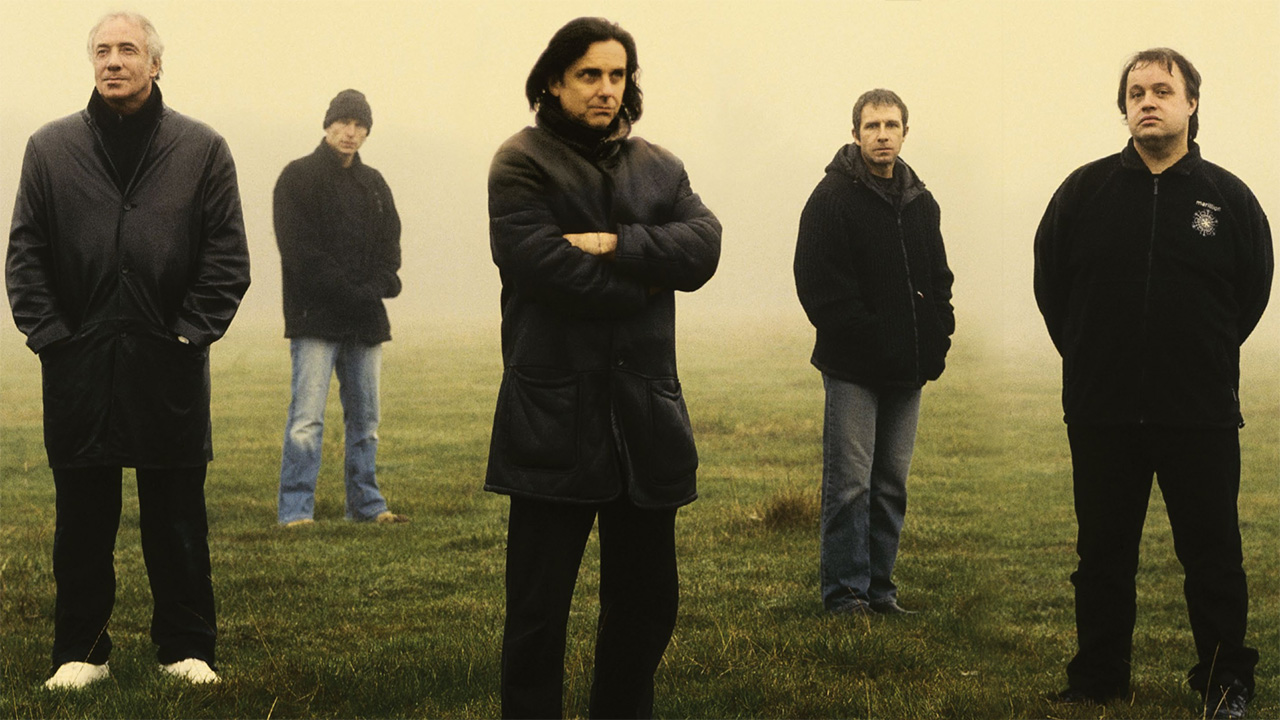
Marbles You’re Gone Prog Some things you never see coming, and a latter-career hit single was probably one of those for Marillion. The choppy, rhythmic loop of – the lead track from 2004 album – reached No.7 on the UK’s Official Singles Chart, their first Top 10 since 1987’s .
(The Dutch, who like Marillion the way a cat likes cream, propelled it to No.8.) Quite the turnaround for a band who’d had to revert to crowdfunding their previous album, .

“It still didn’t stop people asking me about , though!” lead singer observes wryly. “We couldn’t believe it – you have this Top 10 hit and suddenly everyone gets excited and starts phoning you up. I haven’t changed; I haven’t done anything different, and now you’re all doing backflips because of a number on a chart? It’s very weird from the artist’s point of view.
“I remember someone from Radio 4’s programme wanted to talk to me suddenly, and one of his questions was, ‘Do you think motivating your friends to buy your record so you can have a hit single is a distortion of the marketplace?’ That was his question: ‘How dare you make this happen in spite of the BBC?’ As they certainly weren’t playing it. This ‘stay in your lane’ sort of vibe. That said, perhaps it was just a clever question to see what it would draw out? “The song itself was built on a loop, and not a conventional structure.
it came out of playing around with Logic. He wrote those sections on the computer with a keyboard, and it was this new sound that we thought was kind of interesting. The pre-sale was one of our biggest ever, but there’s something about having a hit single again “It’s not what you would play by choice – like there was a little bit missing.
There’s a lot of our music that’s like that. Even when we’re jamming, will play some chords but they’re almost like a challenge: ‘If you can put a melody on this then you’re doing well!’ But quite often that brings out the most interesting stuff.” Sign up below to get the latest from Prog, plus exclusive special offers, direct to your inbox! Bassist adds: “I really liked that it featured that kind of Ian Dury/Blockheads -style bass line.
It was a bit trippy with those jazzy, trip-hop loops, especially for Marillion. And then these lush chords across it gave it this soul; and this great melody line; and suddenly we had this surprise hit.” “It really lifted everyone’s morale, having a hit single,” says drummer .
“We knew the album was good, and the pre-sale was one of our biggest ever, but there’s something about having a hit single again. “And it wasn’t what I suppose you’d call the classic Marillion sound: it was built up from this drum loop that I played along to. We use that loop live, too.
It makes me laugh because we were doing it once and the technology wasn’t quite keeping up. It was sounding great – this real swing – and then halfway through the loop just stops, and we instantly turned into a sort of working men’s club band! “Great song, though.” Philip Wilding is a novelist, journalist, scriptwriter, biographer and radio producer.
As a young journalist he criss-crossed most of the United States with bands like Motley Crue, Kiss and Poison (think the Almost Famous movie but with more hairspray). More latterly, he’s sat down to chat with bands like the slightly more erudite Manic Street Preachers, Afghan Whigs, Rush and Marillion. "I've not done Taylor Swift's numbers, but I don't give a sh*t because I'm proud of the songs I did": As Fish prepares to leave the business behind, he reflects on Marillion, going solo and life after music “Our producer played the intro to Nevermore and I was just blown away”: How U.
K. became Witherfall guitarist Jake Dreyer’s prog heroes Herbie Flowers, bassist for Lou Reed, David Bowie and many more, dead at 86.














